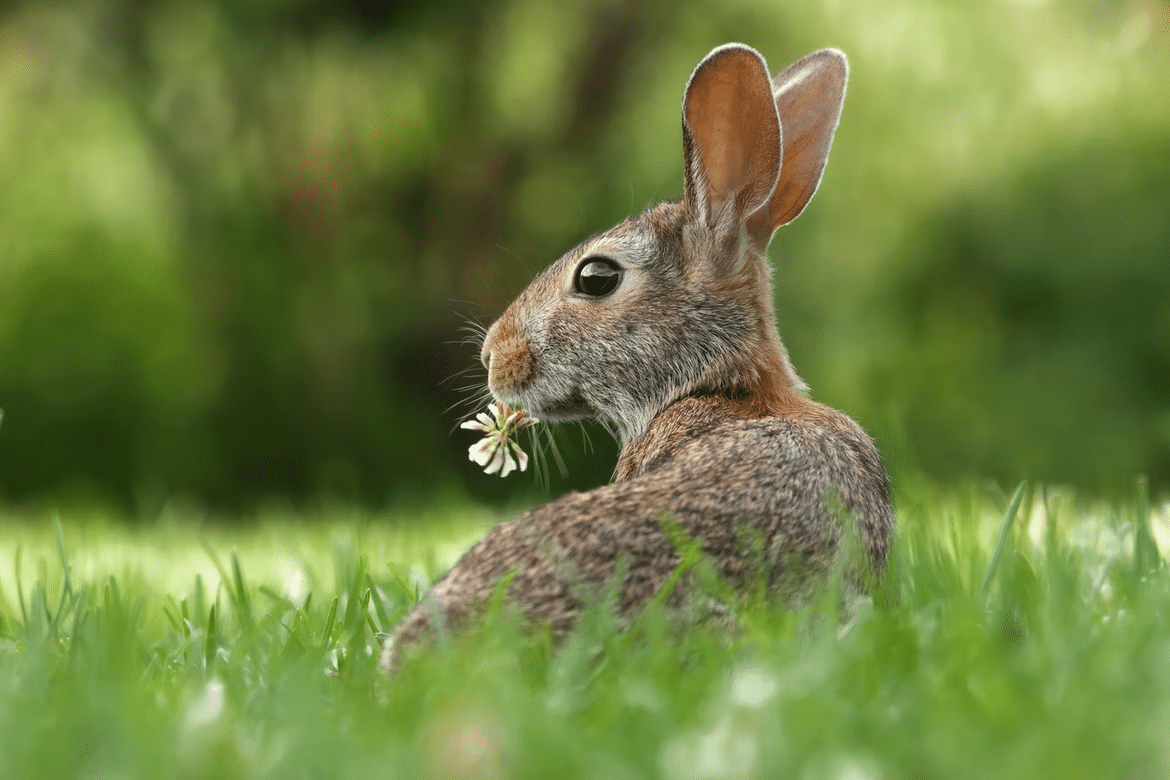Nature is helping Ukraine’s battle. Should more in the travel industry be fighting its corner?

Image: Gary Bendig
By Rachel McCaffery
Water meadows can prevent flooding and coral reefs protect beaches from storms, but can nature really help win wars?
Absolutely, according to award winning Ukrainian conservationist Bohdan Prots. While the Russian army decimates towns and causes misery for those living there, the reluctance of Putin’s troops to enter Ukraine’s dense forests is making a real difference to those defending the country.
‘The more diverse the nature, the harder it is for invaders to occupy’ Prots says, with the passion you’d expect of a lifelong conservationist witnessing the collapse of everything he cares for.
The fact that nature can protect humans shouldn’t be a surprise. We’ve long known that our species can survive only if the natural world is allowed to thrive. Yet nature’s decline continues unabated. Populations of once common UK species like sparrows, turtle doves and nightingales have crashed by over 90%. Brown hare numbers have dropped 80% and half our butterfly species are on the extinction list. The loss of so much of the UK’s native wildlife genuinely pains me, as does the knowledge that the pattern is being repeated on a global scale.
I’m sure I’m not the only one who finds themselves reviving dopey bumble bees with sugar water, or providing snails with safe passage on precarious pavements. But these are just tiny drops in the ocean of wildlife loss, as its natural habitat shrinks the world over.
Tourism’s role
Tourism is one of the many culprits. Our industry has bulldozed huge swathes of land, (especially around species-rich coastlines), to make way for hotels, swimming pools, golf courses and other leisure paraphernalia. It’s not all negative though. Would there still be gorillas in Uganda, or elephants in Kenya, were it not for the dollars tourists bring in? Community-run game concessions in East and Southern Africa bring money to local people, and around the world, whale watching generates far more revenue than whale hunting.
Paradoxically, as wild spaces become rarer, people’s desire to spend time in them grows. For countries with enough wild space remaining, there’s huge opportunity to support economic, social, environmental and even political sustainability by protecting these areas for ecotourism – rather than flattening them to create mega resorts. It sounds like a no-brainer, but this needs national leaders with vision and commitment, rather than those swayed by short term promises from developers and an eye on the next election.
Some leaders and governments have held out in favour of nature and the long-term health of their nations. Costa Rica, Slovenia, New Zealand, Palau and Dominica have all recognised the value of their natural assets and successfully integrated them into their destination brand. But where a country’s tourism offer is more mixed, and a destination’s appeal to birdwatchers or scuba divers has to sit alongside its popularity with golfers and mega cruise ships, the case for wildlife protection is harder.
I’m lucky enough to live close to Knepp in Sussex, where Isabella Tree and Charlie Burrell abandoned industrial farming and allowed nature to take over their 3,500-acre estate. The ‘wilding’ has been enormously successful and little over 20 years from the start of the project the estate has become a biodiversity hotspot. The successful reintroduction of the first storks in England in 600 years made national news.
Open for camping, glamping and wild safari tours, Knepp offers visitors a chance to experience native wildlife that isn’t easily commonly seen in the over populated south east. Tourism wasn’t the motivation for Knepp’s change in approach, but it’ll help make the project economically sustainable in the long term and the project serves as a much-needed reminder of what our natural world could and should look like.
Natural frontrunners
Many in the travel industry share this desire for a rebalance. Perhaps inspired by Knepp, Exodus Travels’ recently launched Nature First commitment includes a partnership with Rewilding Europe to restore 100m2 of countryside for every trip booked. The company is also getting customers involved in mapping the distribution of various species by collecting samples to add to global knowledge of ecosystems. Exodus has an ambitious goal to be Nature Net Positive by 2024. This is refreshingly bold. So many corporate (and government) goals are set long into the future, by which time those setting them have moved into different roles.
But Exodus isn’t making this journey alone. Long-time sustainability champions, Responsible Travel have their own target to be Nature Net Positive by 2030. This is still really ambitious, as they aim for every holiday to leave wildlife and habitats not just untouched, but better off.
With more than 80% of their hotels situated at the coast, Iberostar Hotels have focused efforts on the conservation of seas and oceans while wildlife is one of the core pillars of The Travel Corporation’s Treadright Strategy. Group Head of Sustainability at Hotel Plan, Pru Stone also recently referred to the company’s plans to invest in new rewilding partnerships as part of their Glasgow Declaration climate commitments.
The rest of the industry has little excuse for not getting on board. Animal welfare and wildlife specialists Animondial have great resources to help travel companies measure their impact and become more wildlife and nature friendly. I’m also hoping their collaboration with The World Travel and Tourism Council, to help businesses understand, integrate and apply a Nature Positive approach, will move biodiversity into the mainstream.
We need to step up
There’s a great scope to engage the public here. Wildlife and nature is so much more tangible than the mostly invisible greenhouse gases. We all know CO2 is bad…but it’s hard to get your head around emissions. Butterflies, bees and bunnies though – who doesn’t want to see more of them? Of course carbon reduction goals have to be met. But the fluffy stuff isn’t a bad door opener for the equally serious conversation with consumers about climate. After all, the customers interested in a trip that involves wildlife or spending time in natural areas, are more likely to be interested in lower carbon forms of travel to reach their destination.
Back in Ukraine, Zelensky’s forces harnessed the power of nature again last month by opening the old Soviet dam on the River Irpin, creating a new natural wetland which successfully repelled Russian troops advancing on Kiev. Although the area had previously been earmarked for development, environmentalists like Bohdan are keen for this important new habitat to remain. Ukraine’s humanitarian crisis is obviously a principal concern right now, but around the world wildlife needs all the help it can get.
As I write this, a different kind of battle is underway in Kenya as the UN Convention on International Biodiversity negotiates a plan on how to reverse biodiversity collapse by 2030. The first round of talks in March failed to make significant progress, so the future still hangs in the balance.
It’s time for us as an industry to take things into our own hands. Prioritise nature friendly businesses if you’re selling holidays, take inspiration from the front runners if you’re creating holidays, and whether you’re a hotel manager, a homeowner, or live in a rented sixth-floor flat, plant something for the bees and butterflies!
Written for Travelmole by Rachel McCaffery, of sustainable tourism specialists Green Case.
Rachel is a globally recognised expert in sustainable tourism and has worked on sustainability for businesses, destinations and international institutions, including the United Nations and European Commission
 United Kingdom
United Kingdom United States
United States Asia Pacific
Asia Pacific












































BA pilot dies during layover
Dozens fall ill in P&O Cruises ship outbreak
Turkish Airlines flight in emergency landing after pilot dies
Boy falls to death on cruise ship
Protestors now targeting Amsterdam cruise calls